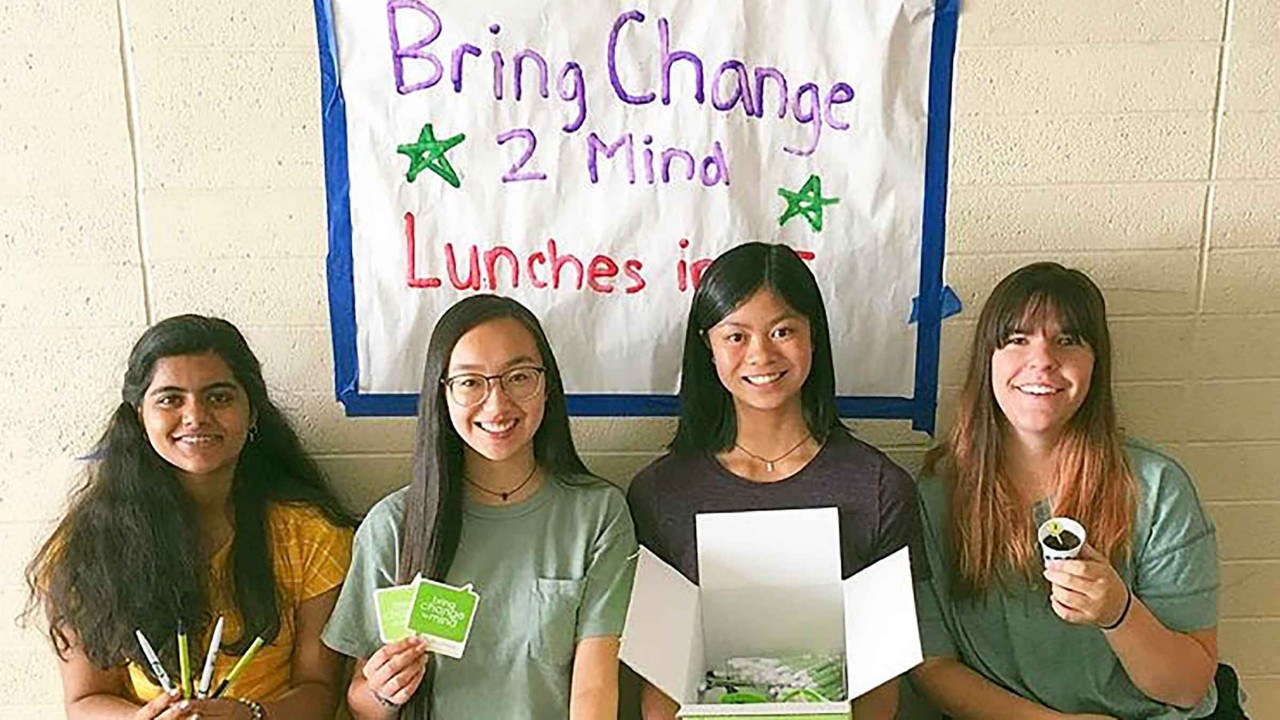High school clubs offer teens new tools to fight the stigma of mental illness
As today’s high schoolers navigate the furious pace of technology plus the pressures of academics and social lives, a national survey shows 21st century teenagers are not only experiencing mental health issues but noticing a concerning prevalence of anxiety and depression among their peers.
One in five teens, ages 13 to 18, either currently have or will have a serious mental illness, according to the National Alliance on Mental Illness (NAMI). Plus, many mental health issues such as schizophrenia, anxiety, depression, bipolar and eating disorders emerge during this maturing stage of life. The problem is, treatment typically does not occur until a number of years later.
“Remember it’s a disease or illness occurring in a developing individual,” said Martin Rosenzweig, MD, a senior behavior medical director with Optum, who has more than 20 years of experience in behavioral health. “If you remember back to when you were a teen, imagine your impulse control and ability to manage difficult emotions, particularly if you overlay mental illness. And then imagine having a resource available that gives a place for acceptance with kids struggling with the same things. To connect is powerful in terms of peer support.”

That need for adolescent support motivated the national nonprofit Bring Change to Mind to spearhead a breakthrough model of high school clubs devoted to raising awareness about the stigma of mental health. Bring Change to Mind (BC2M) activates and empowers conversations and partnerships around mental illness to end the stigma and discrimination surrounding the disease.
The rapidly growing peer support groups led by students are possible thanks to the advocacy of actress Glenn Close, who started BC2M in 2010, inspired by her sister and nephew, who live with mental illness. Close’s vision has now grown to more than 260 clubs in 18 states, with a waitlist of more than 100 schools that need the funding to start their own chapter.
To help close that gap, UnitedHealthcare is helping fund club starter kits, so schools spanning the country from California to Minnesota can have the educational materials and needed resources to kick off new clubs and empower students to educate one another.
“We found that if we embedded ourselves in the high school population, we could benefit these kids to create change on their campus,” said Pamela Harrington, BC2M’s executive director. “Some of our students have petitioned school boards and community leaders to make sure there are more resources. When kids have their own place to create these conversations, we are building a generation of leaders that will affect policy and change, and we can’t do this alone.”
Each club has a faculty adviser guiding the students in weekly meetings and is given a $500 grant to help fund activities, empowering teen advisers to design relevant messages to create their own inclusive communities and become catalysts of change.
“Anxiety has affected me since the beginning. I was dealing with this all by myself. I was totally isolated, nobody knew,” said Sophia, 18, in a BC2M public service announcement.
BC2M isn’t just offering students a safe space, the positive anecdotal outcomes within the 7,500 students involved nationwide are currently being studied in a soon-to-be published research project.
University of California San Francisco and University of California Berkley researchers surveyed more than 50 clubs over the course of two years and found students involved in the BC2M High School Program clubs increased their help-seeking behavior, along with a measurable boost in empathy and compassion. In preliminary findings, students in surveyed clubs also demonstrated decreased social isolation and bullying, and overall, saw meaningful reductions in stigma during the critical window of adolescence.
“We are not being proactive, we are being reactive as a society. Groups like this open dialogue,”said Douglas Newton, a child psychiatrist and a national senior medical director with Optum Health. “I am heartened to see how much social emotional learning and social emotional wellness is not taboo and being sanctioned in an integrated, systemic way in schools. It’s good to see these partnerships.”
The organization has created conversation starters and tools to discuss mental health, giving guidance on specific diagnoses or relationships. Learn more on how to start a BC2M High School Program club here.
If you or someone you know needs help, call the National Suicide Prevention Lifeline at 800.273.TALK or contact the Crisis Text Line by texting HOME to 741741.